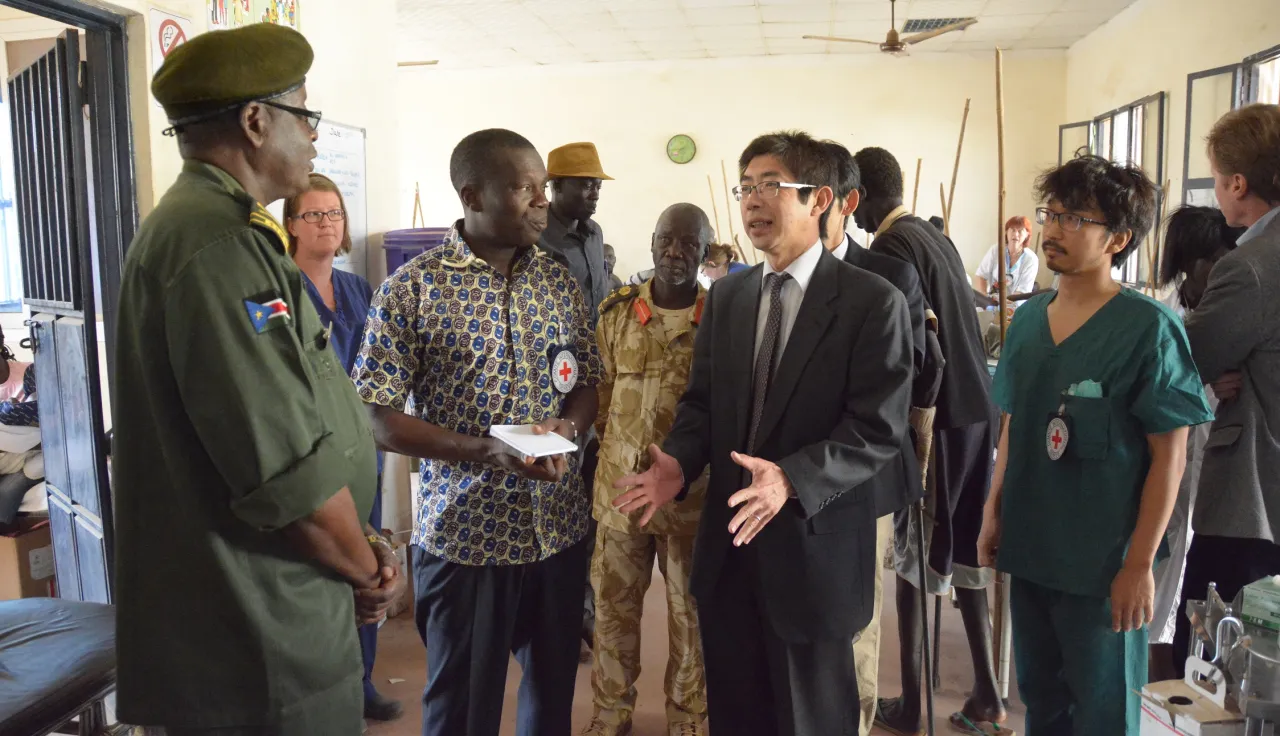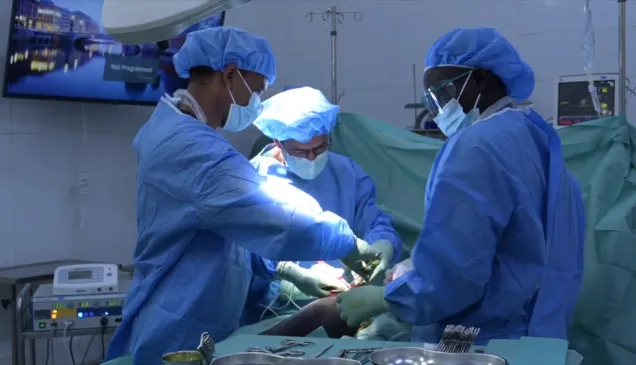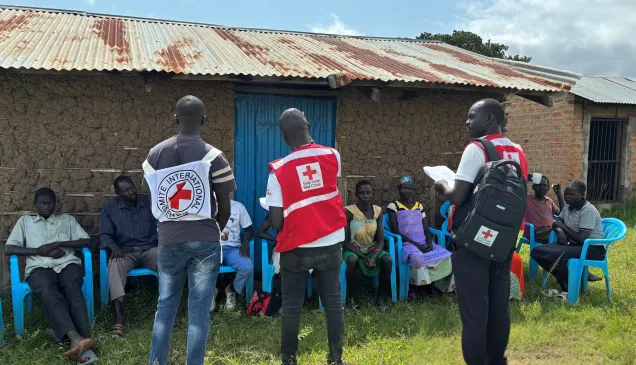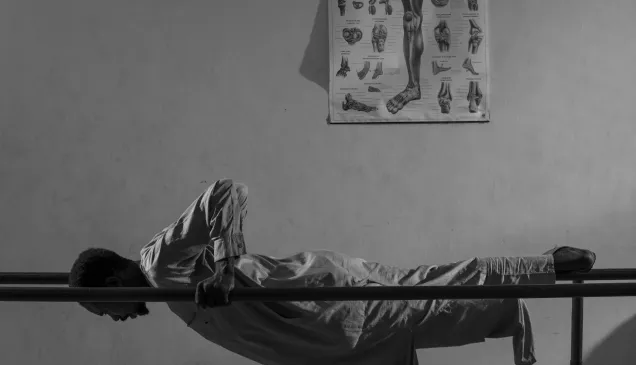South Sudan: Japanese ambassador visits ICRC surgical team

The ambassador of Japan, Mr Masahiko Kiya, paid a visit to the Juba Military Hospital last month where he saw patients with gunshot wounds and met with members of an International Committee of the Red Cross surgical team providing critical health care in South Sudan.
Ambassador Kiya's visit came shortly before an announcement by the government of Japan of a new contribution of $3 million for ICRC operations in South Sudan.
Ambassador Kiya noted that Japan is not only contributing financially to assistance efforts in South Sudan but that several Japanese nationals serve on ICRC's staff. During his visit, Ambassador Kiya met with Dr. Yoshikado Inoue, an ICRC anesthesiologist working at the Juba Military Hospital.
"I think Japan's contribution is effective in two ways. One is the financial contribution. We see so many dedicated ICRC staff and such a huge need," the ambassador said.
"In addition you also have Japanese doctors here supporting the operations. And I understand that there are some other nurses and another doctor who just went back home, so the Japanese doctors and nurses from the Japan Red Cross are coming in and I'm hoping our personnel contribution will also be great," he added.
The director of the hospital, Major General A.B. Alier, said he appreciates the government of Japan's donations and the work of the ICRC.
"So many lives have been saved. Words cannot express it but we do appreciate what Japan has done and is doing in South Sudan," said Alier, the director of the hospital since 2008.
Ambassador Kiya said that Japan shares the values of humanitarianism globally, but he also noted that Japan itself benefited from ICRC assistance during the 2011 earthquake and tsunami. "So supporting is not one-sided. I think we are also supported by many people in the world," he said.
In addition to the ambassador's visit to the patient ward, Alier showed Ambassador Kiya seven new refrigerators installed by the ICRC to house the hospital's blood bank. The hospital had no way to store blood before the ICRC donation, Alier noted.
Dr. Inoue, who is from Aichi, Japan, had 74 surgical cases in his first five weeks at the Juba Military Hospital, mostly patients wounded by weapons and burn patients hurt in a massive explosion in the town of Maridi. Inoue has previously worked in the Solomon Islands, Madagascar and Iraq. He has also trained with and worked for the Japanese Red Cross.
Dr. Inoue said the conditions at the Juba Military Hospital are simple, and that they remind him of the words of a Japanese mentor, who said that practicing medicine in conflict zones returns one to the "origin of all medicine."
"It was quiet challenging for us to perform anesthesia" at the hospital, Dr. Inoue said. "We can use only basic drugs and equipment. There is no anesthetic machine, so we have to bagging manually when intubated."



